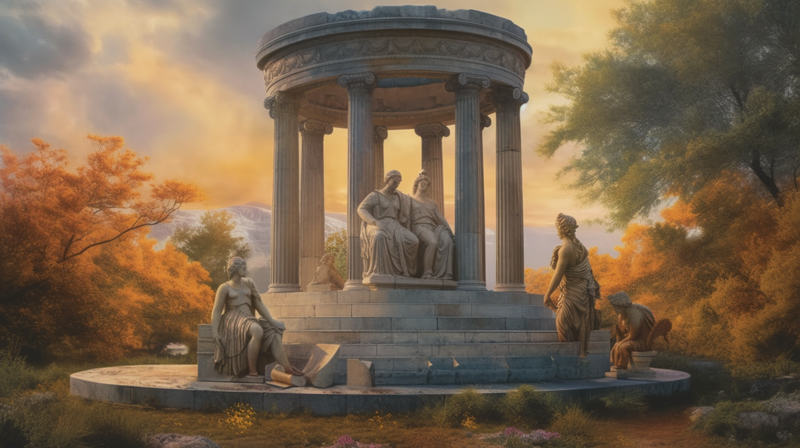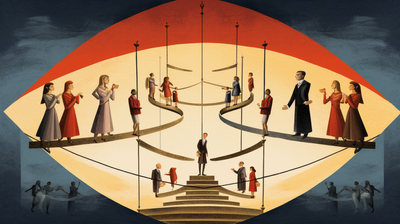The Ethical Journey: Exploring Virtue and Morality in Ancient Greek Epics
In ancient Greek literature, the epics of Homer, namely the Iliad and the Odyssey, have long been revered as profound ethical narratives that offer timeless insights into the human condition. These epics are often regarded as repositories of virtuous ideals and moral lessons, encapsulating ancient Greece's pinnacle of ethical thought. However, upon closer scrutiny, it becomes apparent that the honest journey depicted in these epics is far from the moral utopia it is often perceived as. In this article, we embark on an intellectual voyage to challenge the conventional wisdom surrounding virtue and morality in ancient Greek epics, peeling back the layers of romanticism and delving into the complex realities of the narratives.
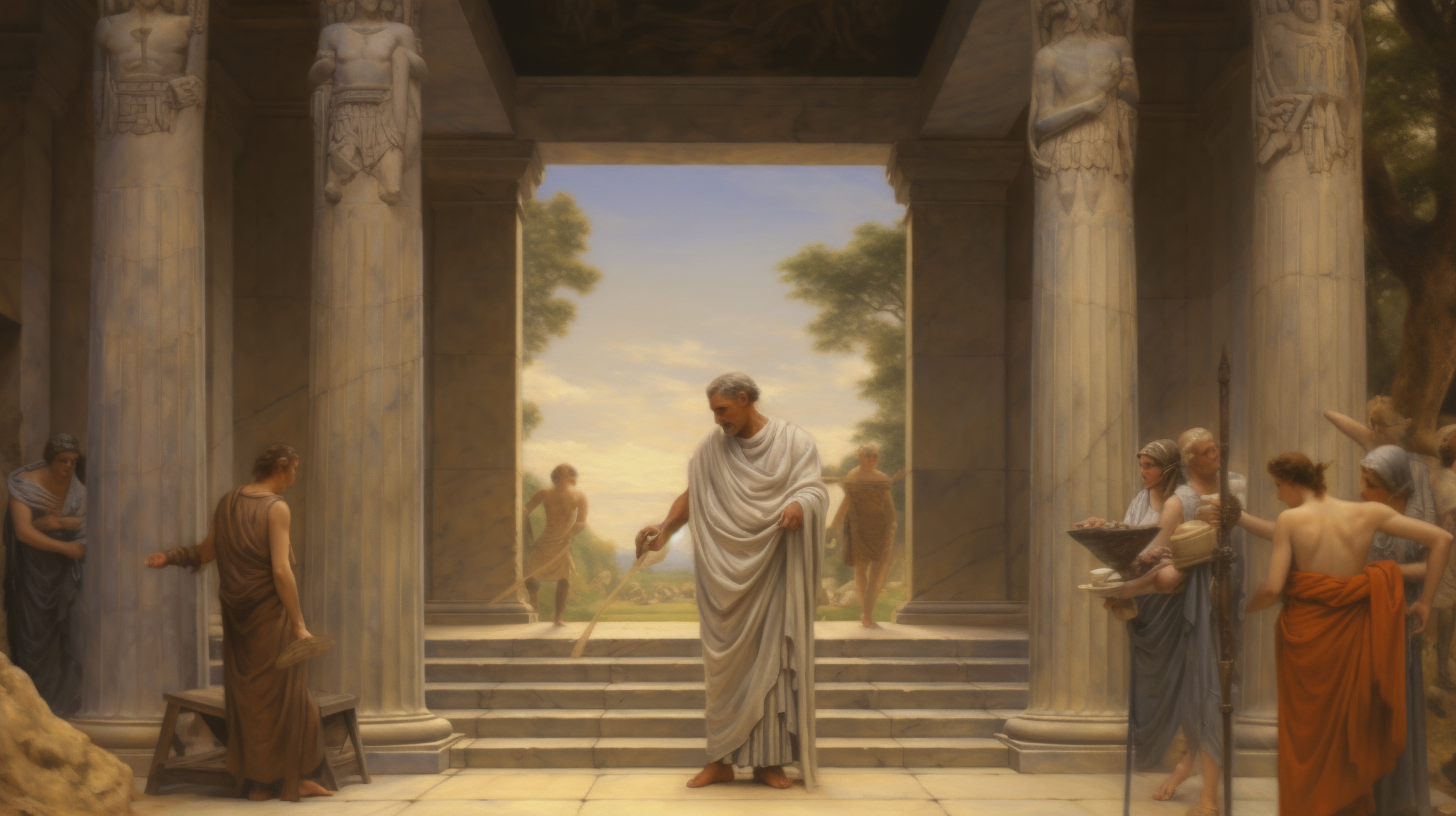
The Cult of Heroes:
One cannot embark on a journey to explore the ethical landscape of ancient Greek epics without addressing the glorification of heroes. In the Iliad and the Odyssey, heroes are often portrayed as paragons of virtue, imbued with noble qualities that inspire admiration and emulation. However, it is crucial to recognize that these heroes are products of a society that exalted physical and military prowess above all else. Consequently, their virtues were primarily confined to martial valour, leaving little room for exploring broader moral questions.
The heroes themselves often display morally ambiguous behaviour. Achilles, for instance, is consumed by rage and allows his vengeful desires to dictate his actions, leading to tragic consequences. Likewise, Odysseus, hailed as the embodiment of cunning intelligence, resorts to deceit and manipulation throughout his arduous journey. These flaws in the characters' moral fibre remind them that the virtues upheld in the ancient Greek epics were selective and contextual, far from the comprehensive moral guidebooks they are sometimes presumed to be.
Gender Bias and Ethical Blind Spots:
Another crucial aspect that warrants examination is the pervasive gender bias and ethical blind spots in ancient Greek epics. These narratives largely neglect the voices and perspectives of women, relegating them to the roles of objects, prizes, and sources of temptation for the male heroes. The treatment of women, as exemplified by the portrayal of Helen, the cause of the Trojan War, is deeply troubling from a contemporary ethical standpoint.
Furthermore, the epics often prioritize men's honour and glory above their adversaries' welfare and dignity. The Greeks' treatment of the Trojans, particularly in the Iliad, is marked by a disturbing lack of empathy and blind adherence to the honour code. This calls into question the universality and comprehensiveness of the ethical framework presented in these epics, for it fails to grapple with the complex moral realities and the potential for ethical dilemmas arising from interactions with other cultures and civilizations.
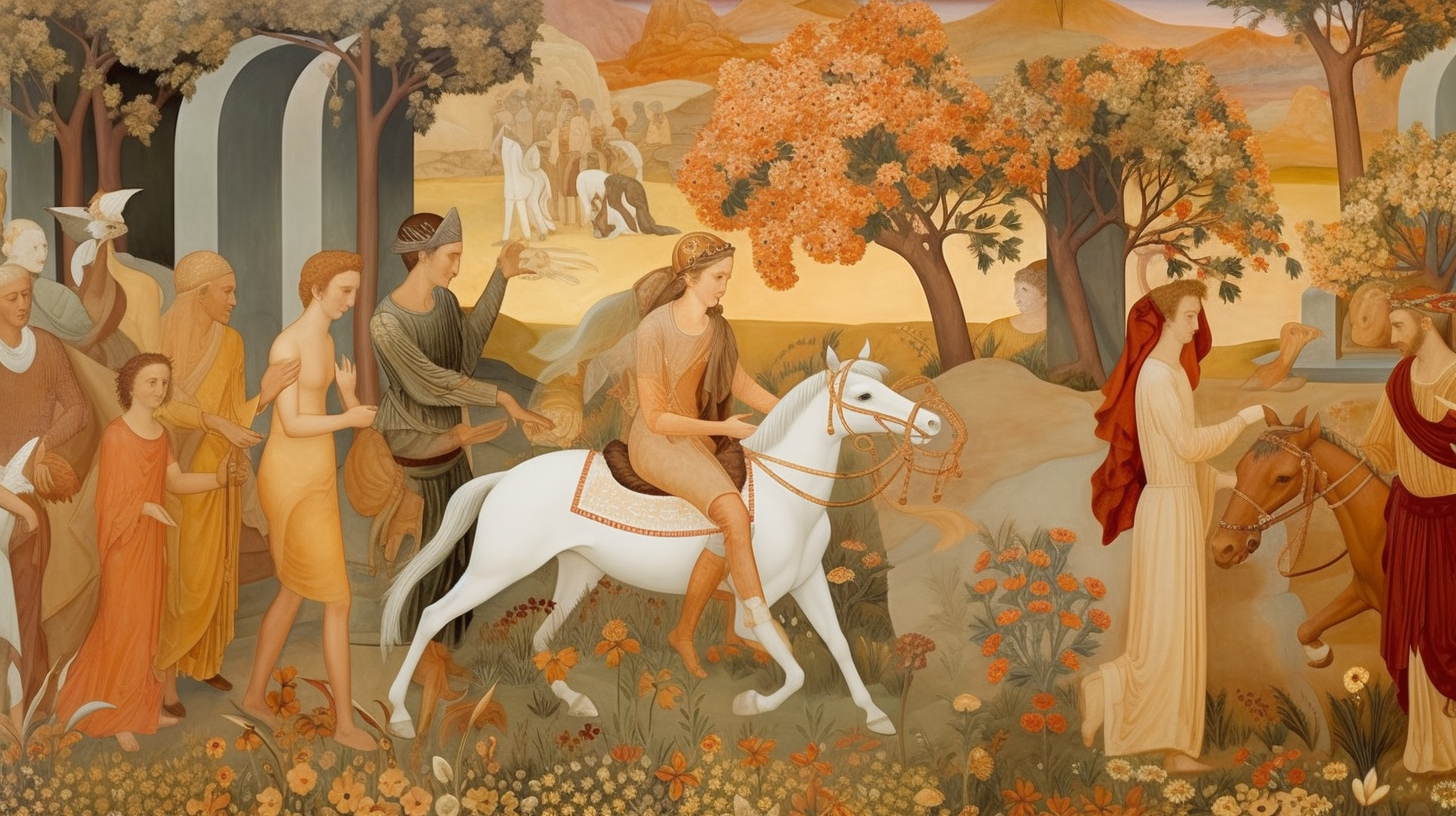
Ethics and the Gods:
A fundamental aspect of ancient Greek epics is the involvement of gods and goddesses in the affairs of mortals. The gods' interference often leads to arbitrary decisions, favouritism, and erratic behaviour, rendering moral judgment precarious. Moreover, the actions of the gods, such as Zeus's numerous infidelities or Poseidon's vengeful wrath, challenge the notion of a stable moral order.
Moreover, the divine influence in the epics raises pertinent questions about the source of morality itself. If a character is contingent upon the whims of the gods, then it becomes a mutable and subjective concept, undermining any claims of moral absolutes. The reliance on divine intervention as a moral compass further highlights the limitations of the ethical framework presented in these ancient epics.
The Philosophical Chasm:
To truly explore the ethical landscape of ancient Greece, one must venture beyond the confines of the epics and delve into the realm of philosophy. The ethical systems formulated by philosophers such as Socrates, Plato, and Aristotle starkly contrast the often ambiguous moral landscape depicted in the epics. These philosophers sought to establish comprehensive ethical frameworks rooted in reason, virtue, and pursuing the good life.
In the philosophical realm, virtue was no longer limited to physical prowess or adherence to societal norms. Still, it encompassed a broader understanding of moral character and the cultivation of wisdom and reason. As a result, the emerging philosophical traditions challenged the prevailing assumptions of their time and sought to transcend the limitations of cultural biases and divine authority.
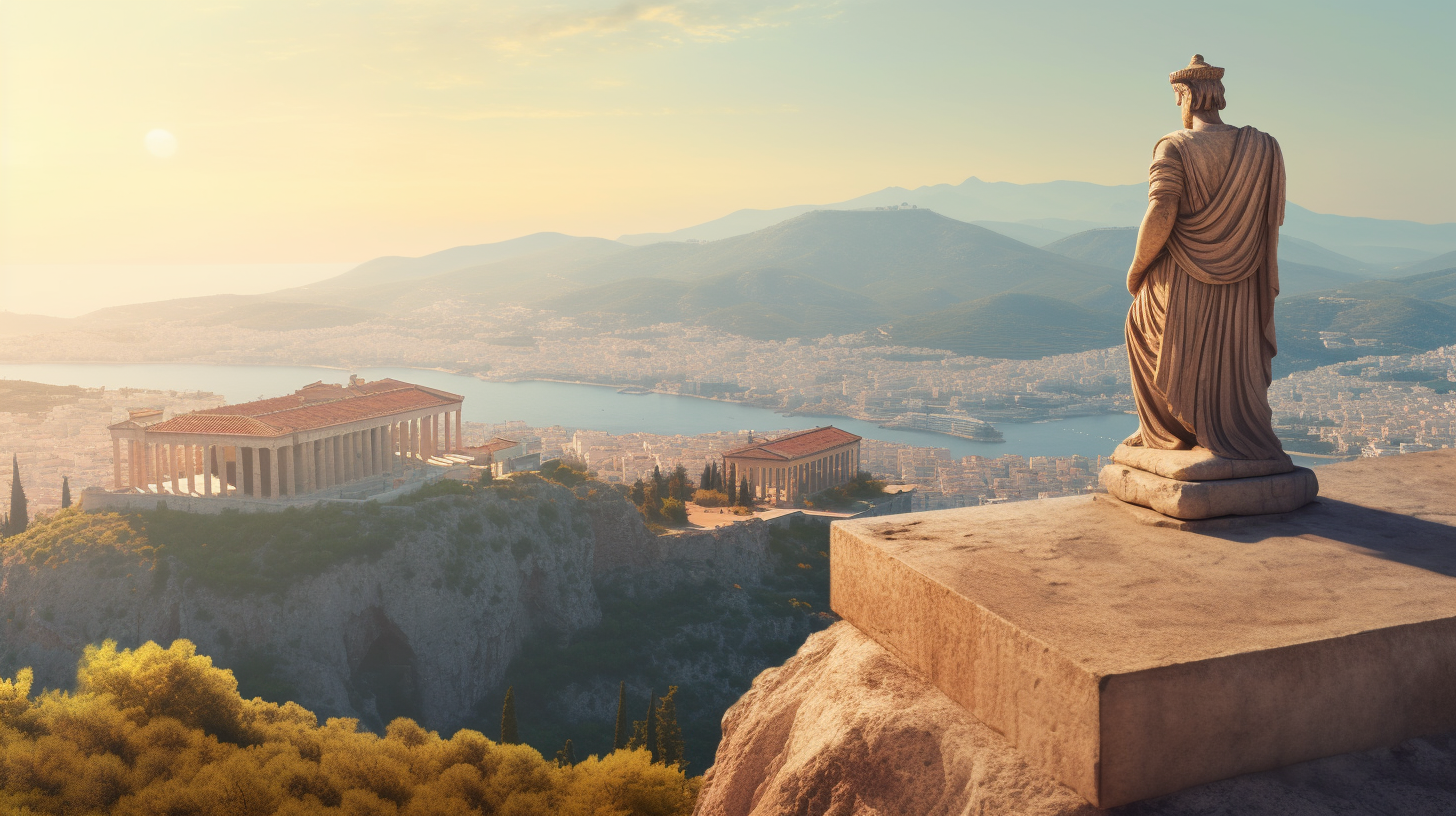
Conclusion:
While the ancient Greek epics, particularly the Iliad and the Odyssey, continue to captivate audiences with their grandeur and heroism, it is imperative to approach them with a critical eye. The ethical journey they depict is far from the moral utopia it is often portrayed to be. The glorification of heroes, the gender bias, the ethical blind spots, the influence of the gods, and the philosophical divergence all complicate and challenge the conventional wisdom surrounding virtue and morality in these narratives.
To consume these epics without critical engagement is to fall into the moral mirage they perpetuate. Instead, as discerning readers, we must embrace intellectual rigour and question the prevailing assumptions of the past. By doing so, we can move beyond the surface-level allure of ancient Greek epics and uncover their ethical frameworks' true complexities and limitations, leading us to a more nuanced understanding of virtue and morality in our own lives.
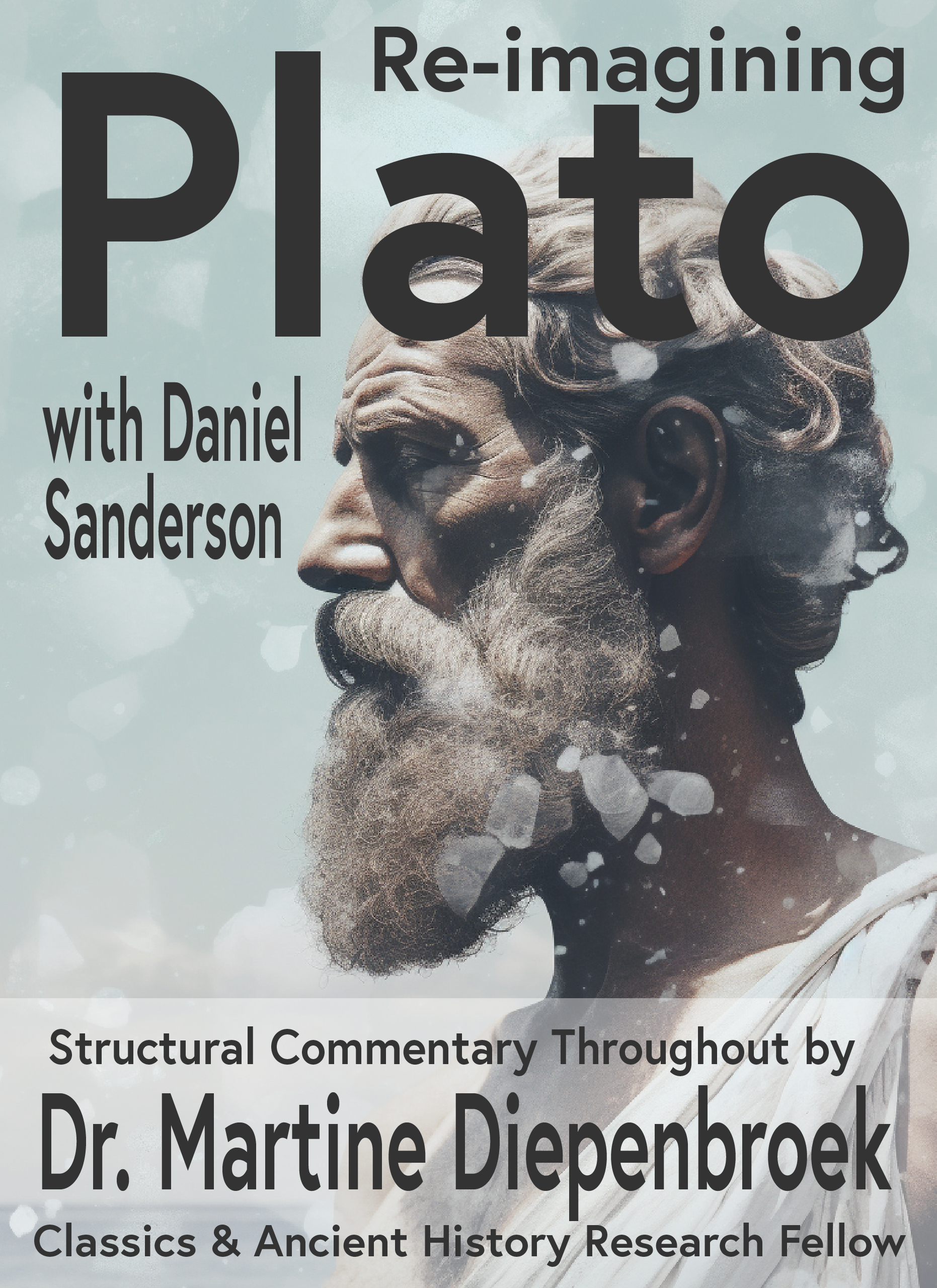
Plato Re-Imagined
This course includes 32 lectures covering most of Plato's dialogues and allowing the student to return to something divine. Divinity should resonate with secular and religious leaders alike. I present a compatible approach in my lecture on Consilience.
Also included with this course is a free book. If you pay for the course, you will get a physical copy of the book for free, mailed to your chosen address — anywhere on the planet!

